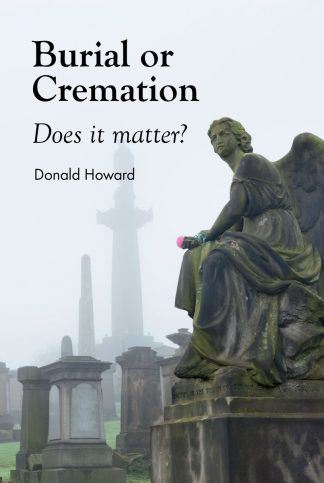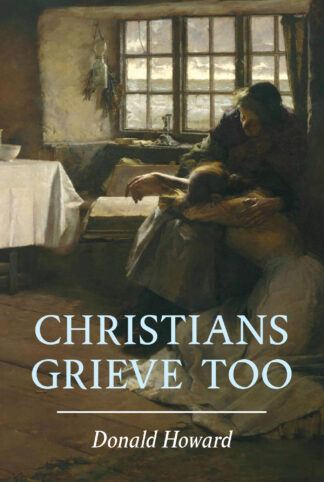Respect for the Dead and Daily Reading of Scriptures
One day in mid January I was reading the newspaper that reported that a request from the late Scottish author Iain Banks had been finally rejected by the local government. He had died at 59 years of age six years ago and had wanted his ashes to be scattered in various places in the world, in the Grand Canal in Venice, in front of a cafe in Paris, on a beach on Barra, most of the ashes to be thrown into Loch Shiel but then some of them he wanted to be attached to a rocket and fired over the Forth of Firth. This firing into the atmosphere had been done a couple of years ago by the son of John Noakes with the ashes of his father who was the former presenter of the children’s TV programme ‘Blue Peter’. However the Scottish authority with responsibility for the Firth had deliberated on this request and in January it had refused permission for Iain Banks’ ashes to be fired over the inlet because people underneath might well object to his ashes settling on their persons, homes and property.
The very next day my daily Bible reading plan happened to take me to the final chapter of Genesis recording the death of Israel (or Jacob) and the response to his death of his son Joseph. I read, ‘Joseph threw himself on his father and wept over him and kissed him. . . Then Joseph directed the physicians in his service to embalm his father Israel. So the physicians embalmed him, taking a full forty days, for that was the time required for embalming. And the Egyptians mourned for him seventy days.
‘When the days of mourning had passed, Joseph said to Pharaoh’s court, “If I have found favor in your eyes, speak to Pharaoh for me. Tell him, ‘My father made me swear an oath and said, “I am about to die; bury me in the tomb I dug for myself in the land of Canaan.” Now let me go up and bury my father; then I will return.’ Pharaoh said, “Go up and bury your father, as he made you swear to do.”
‘So Joseph went up to bury his father. All Pharaoh’s officials accompanied him — the dignitaries of his court and all the dignitaries of Egypt — besides all the members of Joseph’s household and his brothers and those belonging to his father’s household. Only their children and their flocks and herds were left in Goshen. Chariots and horsemen also went up with him. It was a very large company.
‘When they reached the threshing floor of Atad, near the Jordan, they lamented loudly and bitterly; and there Joseph observed a seven-day period of mourning for his father. When the Canaanites who lived there saw the mourning at the threshing floor of Atad, they said, “The Egyptians are holding a solemn ceremony of mourning.” That is why that place near the Jordan is called Abel Mizraim.
‘So Jacob’s sons did as he had commanded them: They carried him to the land of Canaan and buried him in the cave in the field of Machpelah, near Mamre, which Abraham had bought along with the field as a burial place from Ephron the Hittite. After burying his father, Joseph returned to Egypt, together with his brothers and all the others who had gone with him to bury his father’ (Genesis 50:1-11).
There could hardly be a greater contrast in the treatment displayed towards the dead in those two men, to the bodies of Jacob and of Iain Banks. And the difference in practise flows from a different view of God and hence of our bodies. Iain Banks is a self-confessed atheist. He was not a ‘God-botherer,’ as he described himself, and simply treated his incurable disease as bad luck and tried without divine assistance to get on with the remaining details of his life.
Why does it matter to a Christian about how his body will be treated after his death? The martyrs were incinerated, with some even having their ashes scattered by being thrown into a river to be separate from one another, atom by atom. Others were lost at sea and their bodies were never discovered. Others were devoured by carnivores. But we believe that our dust is precious to God. Nothing is lost or irrecoverable to him. As that is true, in life we are not our own but belong, body and spirit to God, so too in death our bodies are still his. We dare not have a demeaning attitude to them.
As another section to the HS2 Underground railway is completed in London a new station is being constructed in London Euston and the builders have been confronted with a cemetery where 45,000 people were buried from 1788 to 1853 in the St. James Gardens. All the skeletons are carefully being removed and a new site has been selected for their reburial. A memorial service has been held. Now this largest archaeological work that has ever been undertaken in England is well under way with a thousand people taking part. One appreciates the care that is being taken.
What is the reason for all this trouble and expense? When don’t they send in the bulldozers, JCBs, and pile drivers and level the site and clear away soil and skeletons in one swoop? Because these are the remains of men and women made in the image of God. One local resident, a church warden, has succinctly protested, ‘It is quite outrageous that they are going to dig up our dead.’ There is to be respect for the dust of ‘our dead’ even 200 years after they have died.
Paul writes, ‘For none of us liveth to himself, and no man dieth to himself. For whether we live, we live unto the Lord; and whether we die, we die unto the Lord: whether we live therefore, or die, we are the Lord’s. For to this end Christ both died, and rose, and revived, that he might be Lord both of the dead and living’ (Romans 14:7-9)
I remember once having a conversation with Professor John Murray. He told me that something went through him when he attended a funeral service and he heard the presiding minister saying at the graveside over the coffin, ‘Dust to dust; ashes to ashes.’ I said to him, ‘But doesn’t God say, “Dust thou art, and unto dust thou shalt return”?’ ‘Ah yes,’ said the professor earnestly, ‘Dust thou art. . . to dust thou shalt return.’ In other words we are not consigning to the grave mere dust. We are burying the body of someone who is made in the image and likeness of God. From the dust God had created man and transformed him by breathing into his nostrils the breath of life. Everyone is a living soul. And now, with his soul wrenched from him in death, we are committing him as to his body, to the grave. We may not treat him in any other way after his death than with the dignity and respect we showed to him as a psycho-somatic unity when alive. It may be right to give parts of his body to help others in organ transplants as we give blood transfusions when we are alive, but we may not degrade him dismissing him as a bag of dust, and playing football with his head, (Horrors!) and clown about with his limbs, or keeping parts of his anatomy for keepsakes or lucky charms. We bury our dead with respect because in the Bible the dead in Christ are always described as sleeping in Jesus. So we impress on our friends this honourable view of the dead. By the by, today one of our great concerns is the extraordinary cost of funerals and even setting up a simple headstone to state who is the one lying there. There should be no shame in the cheapest from of Christian burial and pastors could well mention this long before there is any specific sick Christian in mind.
What was most striking to me was the pertinence of the Scripture passage for that day to the issue described in the paper, the bizarre request rejected by the Scottish council, and then the contrasting honour displayed by family and friends preserved in the Scriptural record describing the death and burial of a much revered man, and finally how that has affected our respect of the dead even in 2019. What have I missed on those days when private devotions have been neglected or done in some peremptory manner?
Of Further Interest

Burial or Cremation
Does it Matter?
Description
One day in mid January I was reading the newspaper that reported that a request from the late Scottish author Iain Banks had been finally rejected by the local government. He had died at 59 years of age six years ago and had wanted his ashes to be scattered in various places in the world, […]

Description
One day in mid January I was reading the newspaper that reported that a request from the late Scottish author Iain Banks had been finally rejected by the local government. He had died at 59 years of age six years ago and had wanted his ashes to be scattered in various places in the world, […]
Latest Articles
Finished!: A Message for Easter March 28, 2024
Think about someone being selected and sent to do an especially difficult job. Some major crisis has arisen, or some massive problem needs to be tackled, and it requires the knowledge, the experience, the skill-set, the leadership that they so remarkably possess. It was like that with Jesus. Entrusted to him by God the Father […]
Every Christian a Publisher! February 27, 2024
The following article appeared in Issue 291 of the Banner Magazine, dated December 1987. ‘The Lord gave the word; great was the company of those that published it’ (Psalm 68.11) THE NEED FOR TRUTH I would like to speak to you today about the importance of the use of literature in the church, for evangelism, […]
